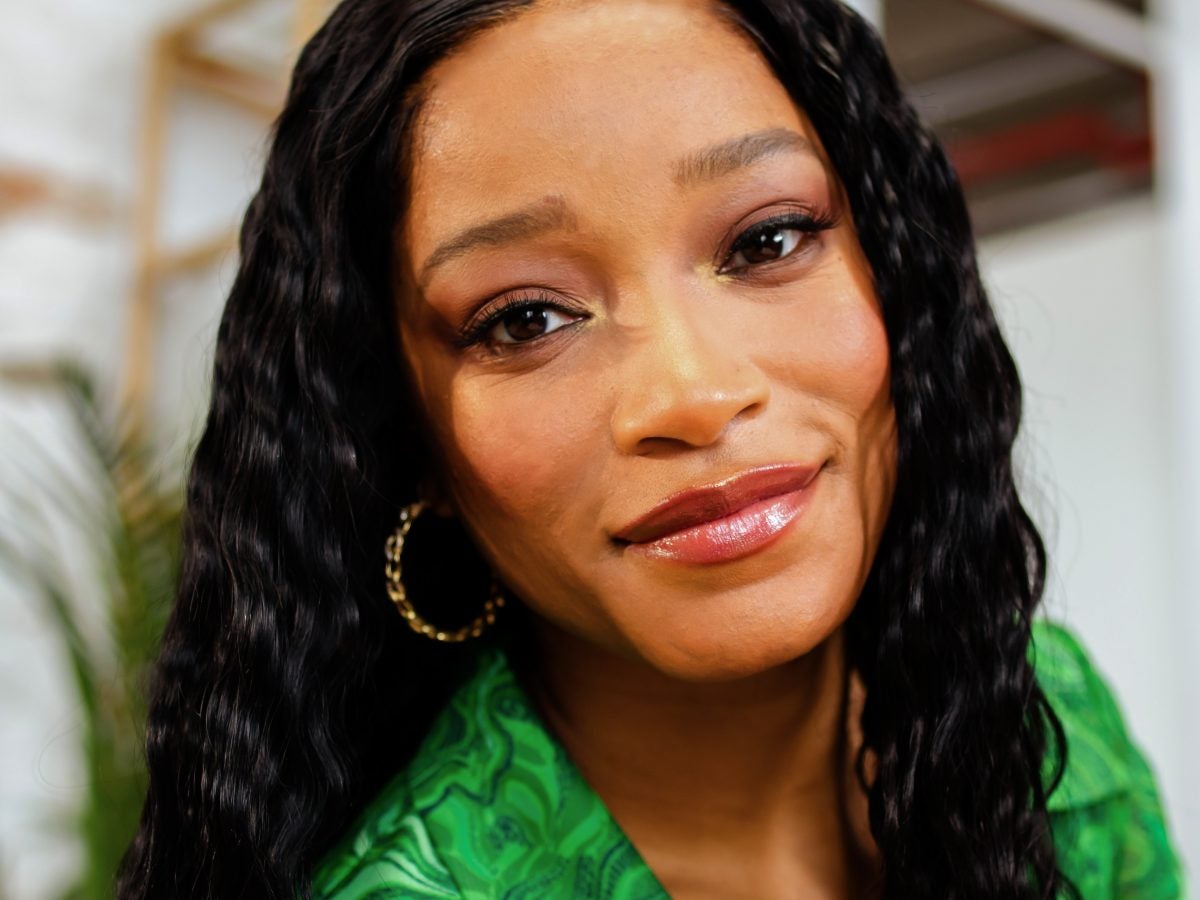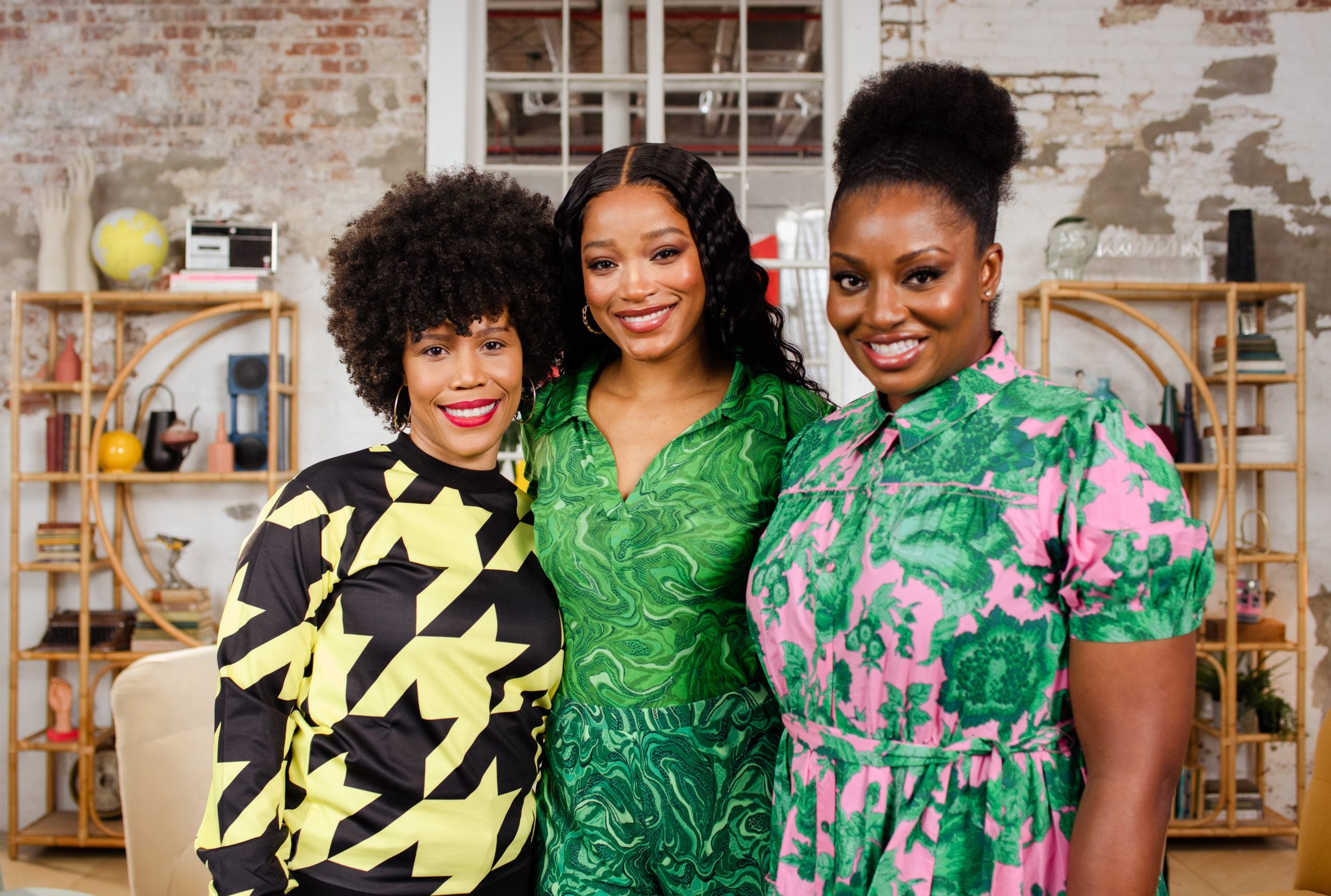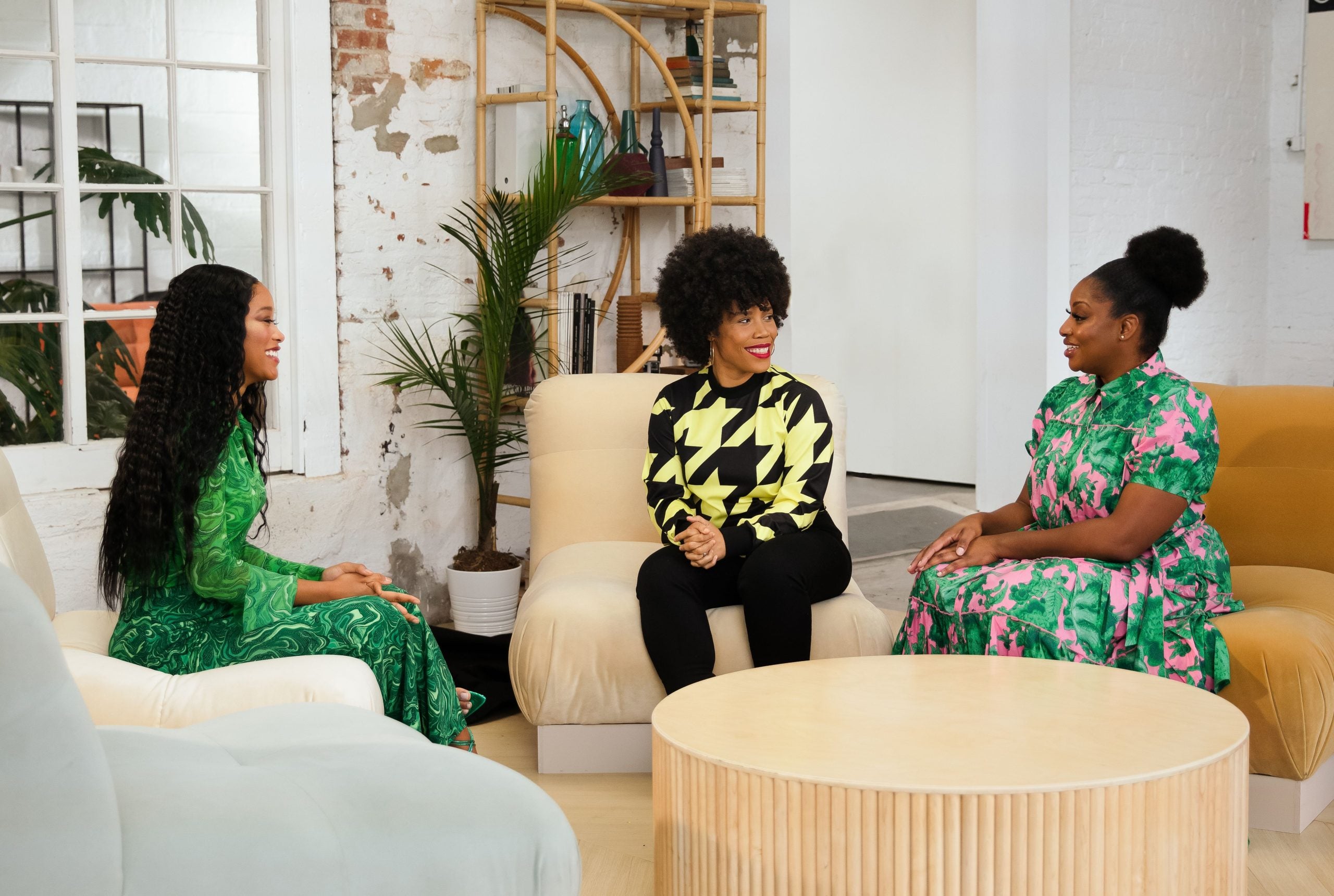
“When you think about a Black business, most likely it’s going to be a smaller business — it’s gonna be a newer business,” says Keke Palmer. For Women’s History Month, the actress and entrepreneur has partnered with Amazon to bring visibility to brands ran by Black women. This month, the internet enterprise will also share Palmer’s sit down with two of business owners she chose to spotlight.
The cause is dear to the award-winner, who is closely associated with business acumen. She became an entrepreneur herself in 2018, heading her own record label, Big Boss Entertainment. In celebration of her 20th year in the entertainment industry, Palmer, she has several exciting projects coming; including a new album, Big Boss. She’s a Beyoncé-defined millennial diva indeed.
Invested in helping the upcoming crop of women looking to take their career in their own hands, the 28-year-old is brimming with thoughtful advice. “Take it day by day and don’t be so hard on yourself. Understand that it’s a process and that Rome wasn’t built in a day and yes, you are gonna run into issues and things aren’t gonna go. Right. But all of it is a stepping stone. It’s not meant to make you give up. It’s meant to help you.”

In the U.S., Black women are the fastest growing group of entrepreneurs. Without valuable resources, like capital and mentorship, most of these emerging pursuits fall flat, fast. Following the protests of the murders of Breonna Taylor, Ahmaud Arbery and George Floyd, pointed conversations about the systemic disadvantages the Black community faces ensued, often specifically as it pertains to business. With knowledge of all of the times Black progress had been snuffed out in infancy — the burning of brick and mortar locations, the lynchings of store owners, and the denial of business loans — Americans shuffled to uplift the community.
With that, Palmer acknowledges how expensive it can be to get meaningful coaching on how to present merchandise to the public. People can’t support what they can’t see.
“It’s extremely important and generally stuff like that is expensive,” she said. “So the fact that Amazon wants to not only give a platform for sellers to sell, but also help them learn how to sell is necessary.”
For her collaboration with Amazon, which hosts over one million businesses, Palmer selected the following brands and peple: Culture Tags, Obia Naturals, EPIC Everyday, Orijin Bees, Darlyng and Co., LIVE BY BEING, author Crystal Swain-Bates, Kanda Chocolates, and Bossy Cosmetics. She asked her friends, did her own digging online, and also worked with the e-commerce giant to curate the list. She’s committed to supporting her own, while keeping the faith that Black women business owners will continue to emerge — and thrive.
ESSENCE: I noticed that a few of the businesses on the list were geared towards children, and I was wondering why is it necessary that we do the dual work of empowering Black business owners as well as the next generation?
Keke Palmer: I think it’s because it creates generational wealth. That’s the big thing. Systemically, Black people haven’t really been held down in, in so many regards, but definitely obviously as business owners.
It’s time to put the spotlight back on Black businesses to remind people that we gotta support each other. Also, to understand that when you are buying Black, you’re sometimes buying into a newer business. So they need proper support, encouragement, and tools to be able to even get to some of the places as these other corporations. It’s just the only way that we continue to create not only generational wealth for our community.
To me, it just makes sense — it’s to counteract all of the systemic injustices. We have to go that much harder to push back businesses to the forefront.
What can everyday people do to help assure that business owners are supported and have what they need?
I think word of mouth is a big one. When you think about a black business, it’s most likely not gonna be something that has been around as long as some of these other names. So you do have to do your research, but a lot of companies, such as Amazon, are helping you to do the research. They have their black Black Business Accelerator program, which also does exactly what we’re talking about, as it pushes to help Black businesses excel.
Tell your friends about what you’re doing. That’s a big thing that’s happening with Amazon, as it pertains to the people that they have in that accelerator program is, is the word of mouth. People are saying, ‘Hey, let me tell you what I’m doing over here. This is how I’m excelling my business. So let me bring you into the fold so you can excel your business and we can get more publicity.’

That’s a great point you made about word of mouth because one of the primary ways that we share information today is through social media. How has social media impacted entrepreneurship?
Massively. I think the great thing about social media is that you’re able to curate a space and create a brand where people get to buy into who you are. Also, with all the different functionalities on these social media sites, it’s made it that much easier, whether it’s buying in-store or clicking the website link to view a shop. All of those things have been of service to Black businesses. If we see something we like, we share. So I think it’s like, keep going with that share button.
Entrepreneurship is largely viewed as a path to freedom. For example, parents with small children can build a schedule around their families. Meanwhile, creators can enjoy having full ownership of their ideas versus having the rights go to a separate brand. What are some of the other benefits of going into business for yourself?
I think the biggest one is what you just said — you get to work and live, not work to live. Which is something that we struggle with in this capitalistic country. It’s hard.
The thing about entrepreneurship though is that you don’t have to do it alone, you know? There’s so many ways when I’m doing what I’m doing, where I bring my friends in. Now I’m working with my mom, I’m working with my sister, and I’m working with my brother. I think that ultimately is what a lot of people start to see in entrepreneurship.
Entrepreneurship is indeed a community effort. It’s not a solo journey, but feel like sometimes from the outside looking in, people are under the impression that it is a singular experience. Why do you think people believe it is journey that you have to embark on by yourself and be alone for the duration of it?
I think because they don’t know what they’re talking about. Again, we have the opportunity to give entrepreneurship a new feel, which I love that our generation does. We’re trying our best to normalize the concept of being an entrepreneur. Ultimately though, the concept of what it is is usually from something we’ve seen or something that we don’t know about fully — it’s our idea of what something should be.
With the work that Amazon is doing to support creators and entrepreneurs, what do you think the future of entrepreneurship will look like?
I think it’s going to keep getting younger and more diverse. I think that’s something that excites me. I think we’re seeing more of that because of the access that kids have to social media. I mean, when you look online, there’s a tons of kid entrepreneurs. They’re creating brands with toys and all types of stuff. So I just think with all this access, the ability to reach millions of people, and the ability to engage with an audience outside of your area, young people are getting to see what people like about them and makes their brand unique [in real time.]
Social media and the internet in general have really changed the idea of what it means to, like you said, be an actor, creator, or entrepreneur. So with these new ideas of what it means to be in certain fields, you’ll have a generation that feels empowered and that much more willing to dive in because they have the tools necessary to do it.
Amazon’s Accelerator program is literally teaching people and giving them resources to be great business owners. This is 2022, so imagine 20 more years from now, what is that program going to evolve into?
Lastly, I would love to hear you talk more about representation. It can be so impactful when people are able to see others that look and think like them in positions of power. Why is representation in entrepreneurship so vital?
I wish this wasn’t all the way to true, but it really is. In most cases, people only really believe something is true when they’ve seen it. You know? They believe in magic because they’ve seen magic be done. So when you haven’t seen it done, when you haven’t seen that it’s possible, your idea of what’s available to you continuously becomes smaller and smaller. The fact that I was able to highlight other women, it’s not just for me, it’s not just for us, but it’s for the people that are watching because we know there was a time when we wondered who was out there doing this. Like, ‘Am I the only person that has this idea? Am I alone?’ It’s all about awareness.




